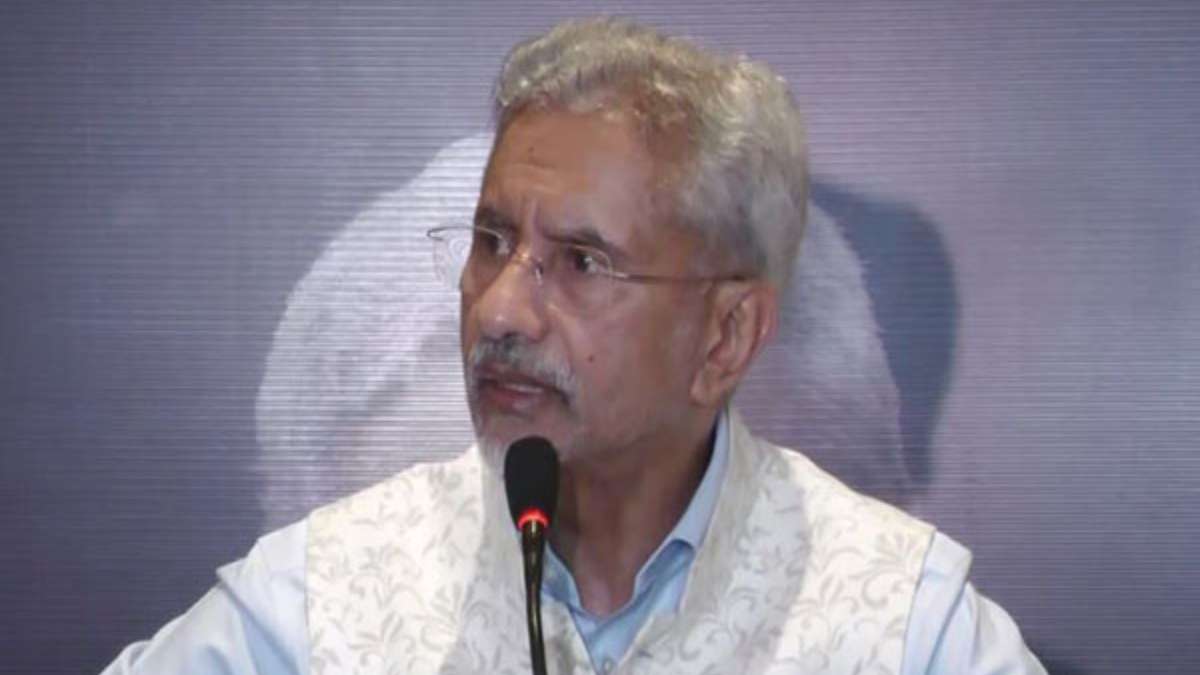
Surat: In a strong jibe at China for repeatedly laying claims over the Indian state of Arunachal Pradesh, External Affairs Minister S Jaishankar on Monday asserted that changing the names of places will not have any effect and reiterated that the northeastern state was, is and will always be an integral part of India. This came after China released 30 names for places in the state.
“If today I change the name of your house, will it become mine? Arunachal Pradesh was, is and will always be a state of India. Changing names does not have an effect. Our army is deployed there (at the Line of Actual Control,” said Jaishankar while addressing a press conference in Gujarat on Monday.
China on Sunday released a fourth list of 30 new names of various places in Arunachal Pradesh amid Beijing’s stepped-up assertions in recent weeks to re-emphasise its claim over the Indian state. India has been rejecting China renaming places in Arunachal Pradesh, asserting that the state is an integral part of the country and assigning “invented” names does not alter this reality.
The Chinese Ministry of Civil Affairs released the fourth list of standardised geographical names in Zangnan, the Chinese name for Arunachal Pradesh which Beijing claims as part of south Tibet, state-run Global Times reported on Sunday. Set to take effect from May 1, the implementation measures stipulate in Article 13 that “place names in foreign languages that may harm China’s territorial claims and sovereignty rights shall not be directly quoted or translated without authorisation,” the report said.
India, China spar over Arunachal Pradesh
India has repeatedly rejected China’s territorial claims over Arunachal Pradesh, asserting that the state is an integral part of the country. New Delhi has also dismissed Beijing’s move to assign “invented” names to the area, saying it did not alter the reality. China claims Arunachal Pradesh as Zangnan or South Tibet as part of Chinese territory.
The recent statements by China to reassert its claims over the state started with Beijing lodging a diplomatic protest with India over Prime Minister Narendra Modi’s visit to Arunachal Pradesh, where he dedicated to the nation the Sela Tunnel built at an altitude of 13,000 feet in Arunachal Pradesh. The tunnel will provide all-weather connectivity to strategically located Tawang and is expected to ensure better movement of troops along the frontier region.
Chinese Foreign and Defence ministries have issued a flurry of statements to highlight China’s claims over the area. Jaishankar on March 23 dismissed China’s repeated claims on Arunachal Pradesh as “ludicrous” and that the frontier state was a “natural part of India”.
“This is not a new issue. I mean, China has laid claim, it has expanded its claim. The claims are ludicrous to begin with and remain ludicrous today,” he said in response to a question on the Arunachal issue after delivering a lecture at the prestigious Institute of South Asian Studies (ISAS) of the National University of Singapore (NUS).
China’s response to US supporting India
Beijing was also peeved over the US statement recognising Arunachal Pradesh as part of Indian territory. State Department Principal Deputy Spokesperson Vedant Patel said on March 9 that “the US recognises Arunachal Pradesh as Indian territory, and we strongly oppose any unilateral attempts to advance territorial claims by incursions or encroachments, military or civilian, across the Line of Actual Control.”
Both the Chinese Foreign and Defence Ministries criticised the US statement saying that the China-India boundary issue is a matter between the two countries and has nothing to do with Washington. On the latest release of names by the Chinese civil affairs ministry, the Global Times report said the translation of names of the place in foreign languages or minority languages should comply with standards formulated by related organs of the State Council, which is the central cabinet of China.
(with inputs from agencies)
ALSO READ | China releases 30 more names for places in Arunachal Pradesh despite India’s strong objection over issue